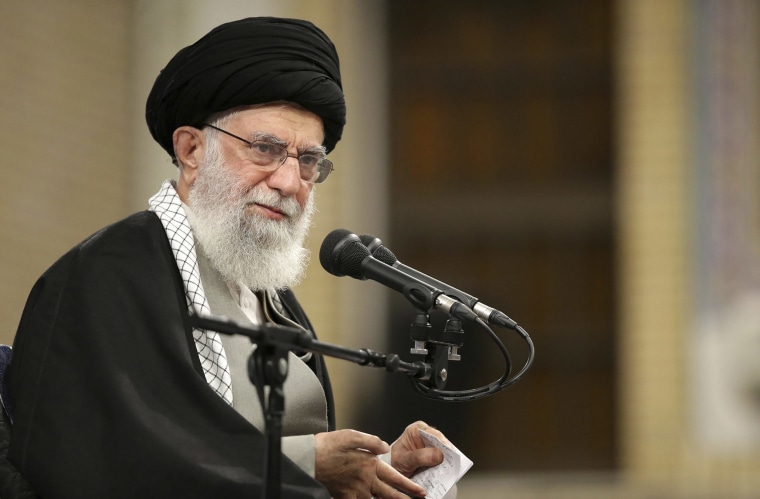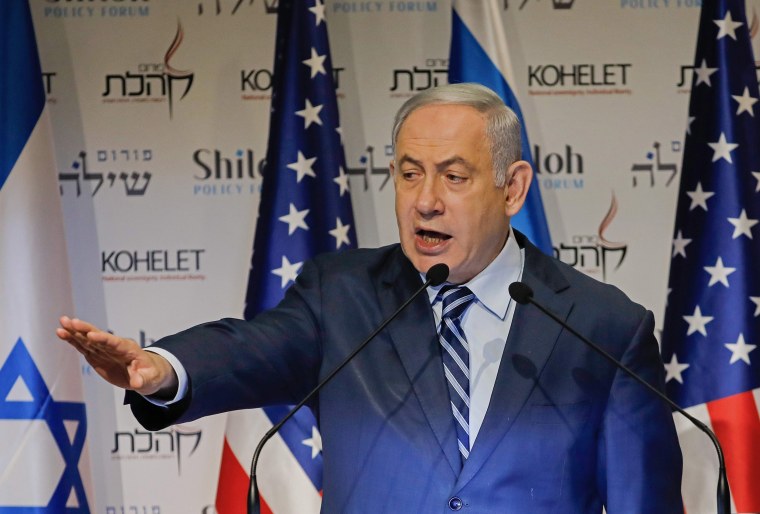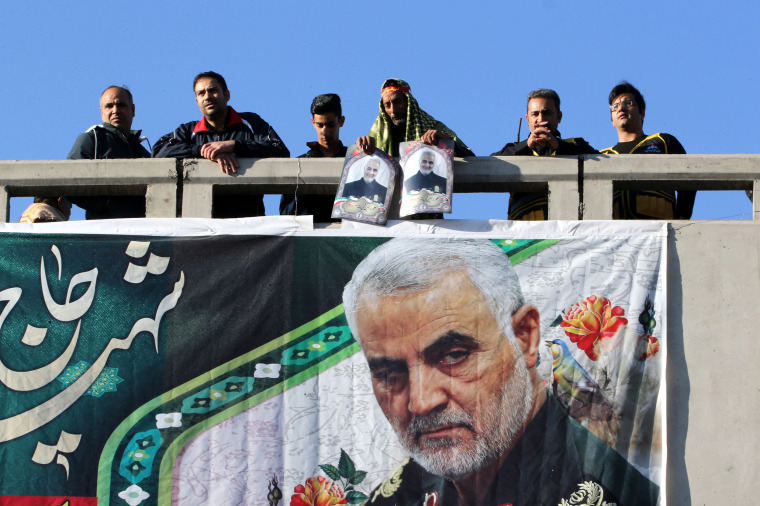TEL AVIV — Countries across the Middle East were on alert Wednesday after Iran fired missiles at bases housing American forces in Iraq in retaliation for the killing of its top general.
The scramble to contain the violence came amid a significant worsening of tensions in the volatile region.
"Amid war drums, we are trying to defuse the tensions by using all channels of diplomacy during this critical period,” Turkish President Recep Tayyip Erdogan said after Turkey announced that Foreign Minister Mevlüt Çavuşoğlu would visit Iraq on Thursday to try and defuse the situation.
Israeli Prime Minister Benjamin Netanyahu also swiftly weighed in, warning that anyone who tried to attack Israel would suffer an “overwhelming blow.”
“Israel stands completely behind the U.S. America has no better friend than Israel and Israel has no better friend,” Netanyahu, a close ally of President Donald Trump, told a conference in Jerusalem. "Iran wants to choke us and eliminate us. We stand firmly.”
Some in Israel consider Iran an existential threat. Tehran usually refers to Israel as the Zionist entity and describes regional countries and other forces opposed to it and the United States as a "resistance" front.

Just before midday, President Donald Trump said from the White House that Iran "appears to be standing down," and vowed to keep up the pressure on Tehran with "punishing" new economic sanctions.
He delivered his speech flanked by several top officials including Vice President Mike Pence, Secretary of State Mike Pompeo and Defense Secretary Mark Esper.
Earlier, Iran’s Supreme Leader, Ayatollah Ali Khamenei, called the overnight missile strikes a "slap in the face" to the U.S. and not sufficient retaliation for last week's killing of Gen. Qassem Soleimani.
Meanwhile, various Western governments warned their citizens and personnel in the region to remain vigilant. The U.S. Embassy in Jordan advised government personnel to avoid nonessential movements outside the home Wednesday, including keeping children home from school.
The French Foreign Ministry updated its advice to its citizens in Israel, advising them to avoid traveling near the border with Lebanon and Syria, and for those north of Haifa and Nazareth to exercise caution.
British Foreign Secretary Dominic Raab urged restraint.
"We urge Iran not to repeat these reckless and dangerous attacks, and instead to pursue urgent de-escalation," he said. "A war in the Middle East would only benefit Daesh and other terrorist groups." Daesh is an Arabic acronym for the Islamic State militant group.
Trump had tweeted over the weekend that if Iran retaliated for Soleimani’s killing, it would face U.S. attacks on 52 targets, symbolizing the number of hostages held by Iran in 1979, when 52 American diplomats and citizens were held in the country for 444 days.
But Tuesday night, he tweeted that "all is well!" after Iran launched the missiles at U.S. and coalition forces in Iraq.

“Missiles launched from Iran at two military bases located in Iraq. Assessment of casualties & damages taking place now. So far, so good!” the president tweeted.
The question posed by observers was what the Trump administration would do next, and what repercussions that might have for U.S. allies in the region including Israel, Saudi Arabia and the United Arab Emirates.
“This has the hallmarks of unintended escalation, the killing of Soleimani and now with the retaliation by Iran, we need to see what happens next,” said Yossi Mekelberg, a professor of international relations at Regent’s University in London.
“Whether the U.S. says, 'Fair enough, we can absorb this attack,' and tries to stop it here, or if it goes the Donald Trump way of threatening 52 cultural targets starting a tit for tat.”
The recent escalation kicked off when a U.S. defense contractor was killed in a rocket attack in northern Iraq on Dec. 27. Two days later, the U.S. launched deadly airstrikes on weapons depots in Iraq and Syria that it said were linked to an Iran-backed Shiite militia group, Kataeb Hezbollah. At least 25 fighters were killed in the strikes.

Supporters of the Iran-backed militia then attacked the U.S. Embassy in Baghdad and the U.S. retaliated with the drone strike that killed Soleimani, whom Washington blamed for a spate of attacks.
Soleimani is also credited with having developed Iran's network of proxies throughout the region — including Hezbollah in Lebanon, Iran-backed militias in Iraq, the Houthi rebels in Yemen and Hamas and the Islamic Jihad groups in the Gaza Strip — that pose a threat to the U.S. or its regional allies.
Part of the issue, regional analysts said, was Trump's unpredictability.
“The problem with Trump is that it’s basically impossible to know what he does next,” said Michael Stephens, a research fellow at the Royal United Services Institute, a London-based think tank.